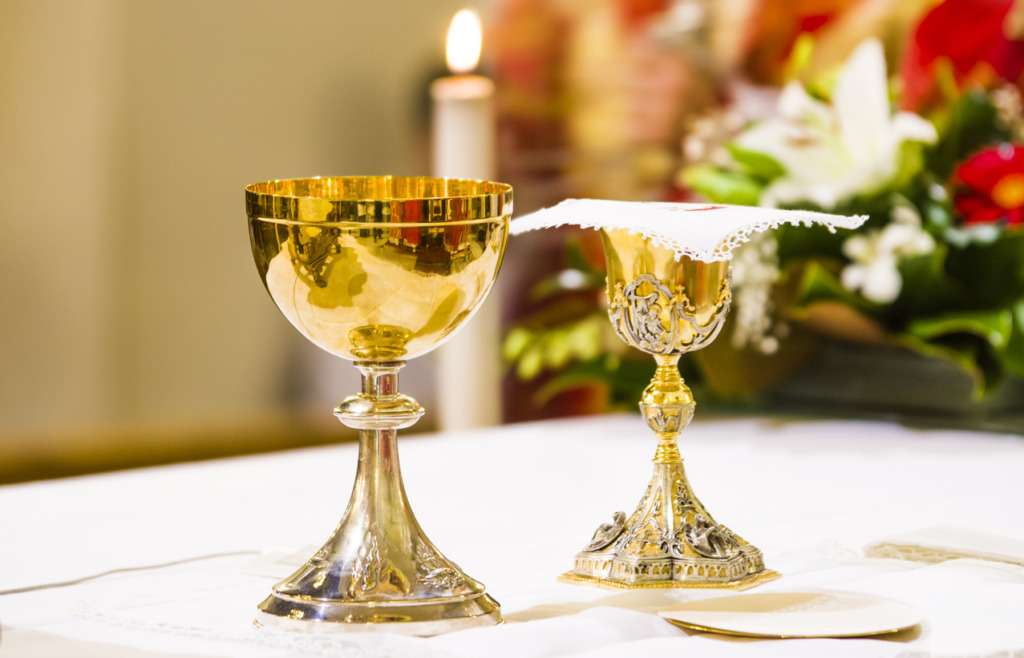Question:
I am a cradle Catholic. I was divorced in 2019 and am now dating a woman who is not a Catholic.
If I were to marry this woman in a civil ceremony or in her Christian church — without an annulment — is it true that I could not receive Communion in a Catholic church as well as not teach religious education, be a godparent or coordinate our parish’s Mass-server program — all of which I now do?
Also, would my ex-wife have to consent to the annulment? What is her involvement in the process? (I would like it to be minimal.) (Norfolk)
Answer:
Yes, it is true that if you married this woman without first obtaining an annulment from the Catholic Church you would not be permitted to receive holy Communion. The Catechism of the Catholic Church explains that you would be “in a situation that objectively contravenes God’s law” and “cannot receive eucharistic Communion as long as this situation persists” (No. 1650).
As to service in ministries that the Church offers, the standard requirement for such volunteers is that they be in full communion with the Church. As one U.S. archdiocese explains on its website, those who serve as extraordinary ministers of the Eucharist, for example, must be “practicing Catholics, distinguished in their Christian life, faith and morals” and “if married, the marriage must be a valid Catholic marriage.”
I applaud your willingness to offer valuable help in your parish’s ministries, and I am pleased that you are thinking of an annulment, which would allow your work to continue. If you were to apply for an annulment, your ex-wife would be notified that you have done so, and she would be offered the opportunity to fill out a questionnaire including her “take” on the marriage and what contributed to its break-up.
For your annulment to proceed, it would not be necessary that your ex-wife complete that questionnaire or participate at all in the annulment process — only that she be offered the chance to do so. Often enough, the former spouse is unwilling to be involved, and the process can still proceed.
Question:
I have been a non-practicing Catholic, but I am sending my child to a Catholic school. She is now 4 years old and wants to be baptized, and I want this for her, too. My desire is to return to Church practice, have her baptized and bring her up as a Catholic. But because I have not been attending a church, I cannot find a parish that will baptize her.
Recently I was asked to fill out a form whereby the pastor of my previous parish would sign permission for her to be baptized in the parish that we will now be attending. I have no idea how to proceed and am hoping that you can advise me. (Austin, Texas)
Answer:
It surprises me that you have been unable to find a parish willing to baptize your daughter — especially given your willingness to return to Church practice yourself and thus serve as an example for your child. As a parish priest myself, I would be delighted to welcome to the sacraments someone with a similar story.
If the parish that you now wish to attend is requiring your former pastor to submit a letter of approval, by all means you should try to make that happen. But first, I suggest you telephone (or, even better, visit) that former pastor and explain your situation.
Make sure that he understands your deep desire to have your daughter baptized and your own intention to return to regular Church attendance and ask him if he would be comfortable in vouching for you.
Question:
As a Catholic, I am very devoted to St. Expeditus. I have tried to look for a Catholic parish named for this saint, but I have been unable to find one in the United States.
If it be God’s will, would you consider placing a statue of St. Expeditus in your own parish church? There is such a statue in Our Lady of Guadalupe Church in New Orleans. (City and state of origin withheld)
Answer:
This question is indicative of the ardent devotion some Catholics have to particular saints of which little may be known historically. St. Expeditus (or Expedite) is generally thought to have been a Roman centurion who was martyred for his Christian faith about the year A.D. 303 in what is now Turkey.
Devotion to the saint seems to have only started much later, and there is some doubt about his existence.
As for the statue in the New Orleans church, one story (perhaps legendary) is that in the 1920s, Catholic nuns at Our Lady of Guadalupe on Rampart Street received a crate marked “expedite”; inside was contained an otherwise unidentified statue of a Roman soldier, whom the nuns dubbed “St. Expedite,” and that statue now stands near the entrance to the church where it draws prayers from those seeking rapid intervention.
That saint may or may not have an historical basis, but it doesn’t hurt for someone to invoke his help.

